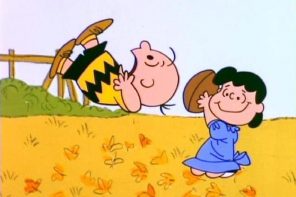Yesterday at The Daily Beast, Peter Beinart made the bold claim that “Democrats have [a] bigger anti-Mormon problem” than Republicans in 2012. Bold, but sloppy, I’m afraid.
To be fair, Beinart’s intention was to urge liberals (as the focus turns from the GOP primaries to the general election) to be as cautious about indulging anti-Mormon sentiment as they would have liked conservatives to have been about indulging racism.
It’s a worthy point—especially since Romney’s Mormonism may in fact be the most fascinating facet of the 2012 contest. But the claim that Democrats already have a bigger problem with anti-Mormonism is both stale and unsubstantiated.
While blaming the “media’s obsession” with evangelical anti-Mormonism, Beinart cites June 2011 Gallup poll numbers stating that 27 percent of Democrats would oppose a Mormon candidate, compared to 18 percent of Republicans (as though the question can be treated in the abstract when a particular Mormon, a Republican, is actually participating the race). He then meanders into half-cooked theorizations of what constitutes “anti-Mormon bigotry,” suggesting that “African-Americans, gays, and lesbians are more anti-Mormon” because they use “the church’s historic (and even present-day) intolerance to justify intolerance.”
There are many problems with Beinart’s gross oversimplification of what constitutes bigotry, intolerance, and prejudice. Among them is the fact that we do not have sufficient data to show that voter reticence about Mormon candidates is actually rooted in anti-Mormonism. None of the pollsters who have tried to track anti-Mormonism this election cycle have followed up the question “would you vote for a Mormon candidate for president” with the even more crucial “why” or “why not”?
The Pew Foundation has come closest with its meticulous state-by-state GOP primary analyses, especially when it has asked voters how important it is to them that a candidate share their religious views. That’s an extremely polite way of gauging whether voters reject a candidate on the basis of perceived religious difference alone, even when he or she may share their ideological views.
But no polling organization has ever gathered satisfactory qualitative evidence from Democrats who express reservations about voting for a Mormon.
As a Mormon, I’ve experienced anti-Mormonism, and I’ve experienced it from people all over the political spectrum. As we enter a campaign season in which the entire nation considers a presidential candidate deeply embedded in a widely misunderstood minority religion, the subject of anti-Mormonism deserves a far more rigorous and data-based analysis than Beinart delivered.
And until we have proper data in hand to analyze why voters express reservations about Mormonism, it’s worth being a little more judicious at least in characterizing what counts as anti-Mormonism.
The pejorative term “cult” is classic evangelical Christian anti-Mormonism that taps into a historic strand of anti-Mormon rhetoric rooted in the American South.
Exaggerating and sensationalizing the differences in Mormon theology or culture with the purpose of shaming and marginalizing Mormon people is also anti-Mormonism. (I think it’s worth noting that in an anti-anti-Mormonism essay, Beinart himself called Mormon garments “underpants,” a term which is both inaccurate and belittling.)
Isolating Mormons, a small religious minority, as being emblematic of a grand national problem—be it polygamy during the late 19th century or racism and homophobia in the 21st—is anti-Mormonism.
And, of course, using your MSNBC talk show to launch into random on-air diatribes against Mormonism time and time again is anti-Mormonism. (I’m looking at you, Larry O’Donnell.)
But simple ignorance about Mormon culture and beliefs is not anti-Mormonism.
Nor is respectful but rigorous analysis of a little-understood religious tradition that has had a profound impact on a potential president of the United States, even though some conservative columnists have tried to claim that it is.
Harboring questions and concerns about the commitment to racial equality on the part of a presidential candidate who belongs to a faith that has only in the last few months publicly acknowledged the errancy of its 130-year ban on ordination of men of African descent (and has never apologized for it, unlike other religions with racist histories) is not anti-Mormonism.
And when supporters of women’s rights and gay rights express reservations about voting for a member of a church that has gone on record against, devoted resources to, and directed its members to oppose progressive gender-related initiatives like the Equal Rights Amendment or marriage equality—that’s not anti-Mormonism either.
In fact, when Democrats express reticence about voting for a member of a religion overwhelmingly associated in the late 20th century with Republican conservatism—that’s not anti-Mormonism.
Call it ideology. Call it partisanship. Call it principles. Whatever you call it, in politics, it’s totally fair game.


